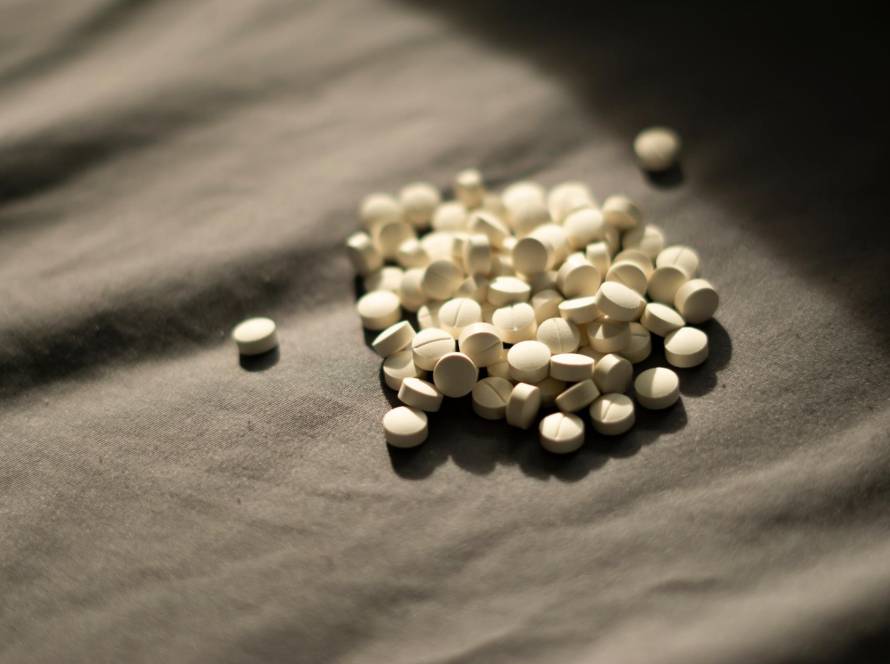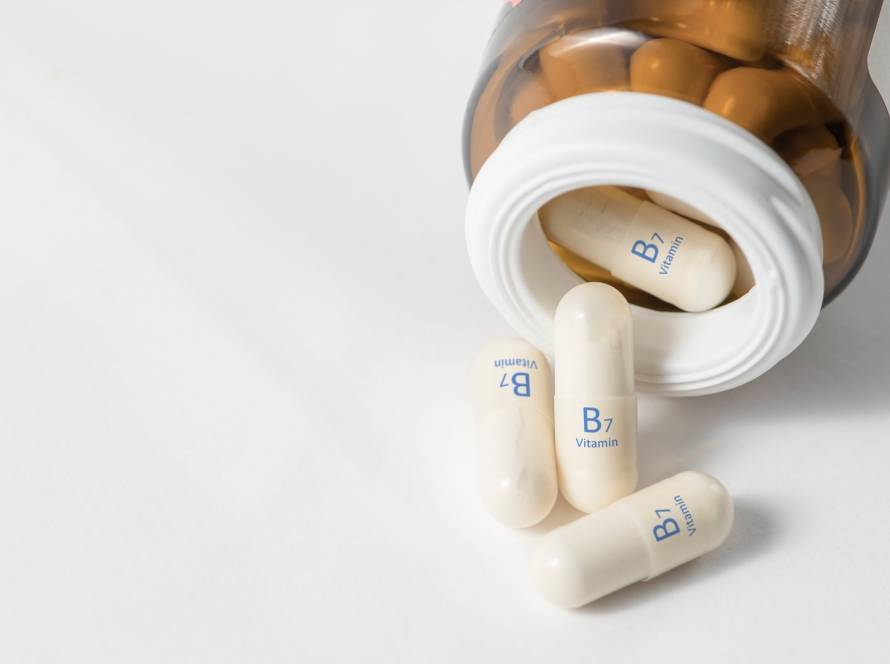Your telomeres shorten by 23-38 base pairs per year. The natural aging process becomes especially important if you have shorter telomeres. People with shorter telomeres face substantially higher mortality risks.
The latest research reveals promising ways to protect these vital DNA segments. This piece will help you understand how to protect your cellular health with the best supplements for telomeres. You might even slow down the aging process at its most basic level through essential vitamins and specialized compounds.
Understanding telomeres and cellular aging
Telomeres are special protein structures that sit at chromosome ends and work like plastic tips on shoelaces to protect them. These amazing structures have repeating DNA sequences that guard our genetic material from harm.
Telomeres do three main things:
- Stop chromosomes from sticking together;
- Help DNA copy itself completely;
- Work as molecular clocks that control how long cells live.
During the cell division, telomeres get shorter by 30 to 200 base pairs. This keeps happening until telomeres reach a critically short length (Hayflick limit), which happens after 50-70 cell divisions.
How telomeres affect your longevity
Scientists have found a strong link between how long your telomeres are and how long you live. People who have telomeres in the shortest 10% have a 26% higher chance of dying within three years. Research shows that people with longer telomeres tend to live about 2.5 years longer than those with shorter ones.
Think of telomeres as biological clocks that control how cells age through different ways. When telomeres get too short, they make cells stop dividing permanently, a state called cellular senescence. This affects how well your body can repair and renew tissues, which shapes your overall health and aging.
Key factors that speed up telomere shortening
Your telomeres can get shorter faster because of:
- Oxidative stress from breathing, inflammation and lifestyle choices like smoking and drinking alcohol;
- DNA damage and poor repair systems;
- Cell inflammation and metabolic stress;
- Environmental toxins and poor food choices.
Different tissues lose telomere length at different speeds. Understanding these factors helps us explore supplements that might keep telomeres healthy and support cell longevity.
Supplement strategies to longevity
Age and telomere length share a complex relationship that creates both challenges and opportunities in targeted supplementation. Studies reveal that telomeres naturally shrink from about 10 kilobase pairs at birth to 4 kilobase pairs by age 80.
Other research shows that women tend to have longer telomeres than men at the same age. Daily multivitamin users experience 5.1% longer telomeres compared to those who don’t take supplements.
The core team recommends these supplements:
- Vitamin C and E combination to protect against antioxidants;
- B vitamins to support DNA methylation;
- Omega 3 fatty acids to reduce inflammation.
The strongest foundation for telomere health comes from a complete mix of vitamins D, B, C and E combined with powerful antioxidants. Natural compounds like TA-65 and omega 3 fatty acids show remarkable ability to activate telomerase and slow down cellular aging.
Essential vitamins for telomere health
Scientists have discovered fascinating links between vital vitamins and telomere preservation. Let’s look at how certain vitamins help our cells live longer.
Vitamin D and telomerase activation
Vitamin D is a vital micronutrient that maintains telomeres. Some studies show that people with higher vitamin D levels have longer telomeres. Other studies suggest this connection grows stronger with proper calcium intake.
Vitamin D does much more than handle simple cellular functions. A year long vitamin D supplementation study showed better cognitive function by lowering oxidative stress, which helped preserve telomere length.
B vitamins and DNA protection
B vitamins protect our genetic material naturally. These nutrients help preserve telomeres in several ways:
- Vitamin B3 (niacin) is a precursor to nicotinamide adenine dinucleotide (NAD+), which is critical for DNA repair and telomere maintenance;
- Vitamin B6 helps lower homocysteine levels, that is associated with slower telomere shortening;
- Both B12 and B9 (folate) are essential for DNA methylation, which regulates gene expression and protects telomeres from damage.
B vitamins’ effects show up clearly in death rate studies. People with vitamin B6 levels above 14.2 µg/L had a 59% lower risk of all cause mortality. Those with longer telomeres typically had higher vitamin B6 levels.
These results highlight why proper vitamin levels matter for telomere health. Vitamin D and B vitamins work through different but complementary ways to support our cells’ longevity.
Powerful antioxidants that protect telomeres
Antioxidants serve as powerful defenders against telomere shortening. They play a vital role in cellular longevity. Let’s look at the most effective antioxidants that protect our telomeres.
Vitamin C benefits for telomere length
Studies show a direct link between vitamin C intake and telomere preservation. Research indicates that higher dietary vitamin C intake is linked to longer telomeres. A complete cross sectional analysis of 7,094 participants confirmed this positive relationship between vitamin C consumption and telomere length.
Vitamin C protects telomeres through multiple pathways. This water soluble antioxidant removes free radicals in cellular environments and prevents damage to critical biomolecules. It also helps improve telomerase enzymatic action that supports telomere elongation.
Vitamin E and cellular preservation
Vitamin E is the main chain breaking antioxidant in biological membranes. Alpha-tocopherol shows the highest biological activity among its eight natural forms. The gamma-tocopherol form works better against reactive nitrogen species.
Carotenoids and oxidative stress reduction
Carotenoids have remarkable effects on telomere protection. Blood carotenoid levels substantially associate with telomere length. Key findings show:
- A doubling of blood alpha-carotene, beta-carotene and beta-cryptoxanthin linked to approximately 2% longer telomeres;
- Adults who had the highest levels of certain carotenoids, had telomeres that were 5-8% longer compared to those with the least amount of these carotenoids in their system.
Carotenoids also display potent antioxidant properties. Beta-carotene, alpha-carotene, beta-cryptoxanthin, lutein/zeaxanthin and lycopene make up over 95% of human blood circulation carotenoids. These compounds reduce damage from reactive oxygen species and stop lipid peroxidation.
Studies indicate that higher serum carotenoid levels link to longer telomere lengths, especially in overweight or obese populations. Carotenoids anti-inflammatory properties help reduce inflammatory mediator production and provide additional protection against telomere damage.
Natural compounds that activate telomerase
Scientists have found two remarkable natural compounds that show promising results in preserving telomeres. These findings create new ways to support cellular longevity through targeted supplements.
Astragalus and TA-65
The root extract of Astragalus membranaceus has become a breakthrough telomerase activator. TA-65, a purified form of cycloastragenol from Astragalus, shows great promise in maintaining telomeres. Clinical studies show that TA-65 increases telomerase activity by 2-fold compared to untreated cells.
TA-65’s effectiveness comes from its unique way of working. Research shows TA-65 can:
- Boost lymphocyte growth across major subpopulations;
- Lower inflammation markers;
- Improve adaptive immunity;
- Help cardiovascular health.
Fish oil and omega 3 benefits
Omega 3 fatty acids have amazing effects on telomere preservation. Studies show these essential fats help maintain telomere length. Omega 3s protect telomeres through their antioxidant and anti-inflammatory properties.
A breakthrough study of coronary artery disease patients found an inverse relationship between baseline omega 3 levels and telomere shortening rates. People with higher omega 3 levels had slower telomere shortening over five years. Those with the lowest omega 3 levels experienced the fastest telomere shortening.
The protection works through multiple pathways. Each standard deviation increase in omega 3 levels leads to a 32% reduction in telomere shortening odds.
These results highlight how natural compounds can support telomere health. Both Astragalus derived compounds and omega 3 fatty acids offer great approaches to maintain cellular longevity through different yet complementary mechanisms.
Your telomeres need a balanced approach with quality supplements, proper dosing and regular monitoring. This evidence based strategy, along with healthy lifestyle choices, creates the best path to cellular health and supports your longevity goals.


